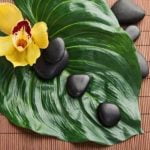Are you looking to create a peaceful and harmonious space in your bedroom? Look no further than the ancient practice of bedroom feng shui. In this article, we will explore the significance of feng shui in the bedroom, how to choose the right colors, position your bed for optimal energy flow, and incorporate natural elements into your design. We will also discuss the role of lighting and common mistakes to avoid when implementing feng shui in your bedroom.
Dating back thousands of years, Feng Shui is an ancient Chinese philosophy that focuses on creating harmonious environments by arranging furniture and decor to maximize the flow of energy or “chi.” The bedroom is one of the most important rooms in a home according to Feng Shui principles as it is where we rest and rejuvenate, making it crucial to ensure that the energy flows smoothly.
When it comes to incorporating feng shui into your bedroom, color plays a significant role as different shades can evoke different emotions and energies. Additionally, positioning your bed for optimal energy flow, decluttering and organizing efficiently, incorporating natural elements, understanding lighting’s impact, and avoiding common mistakes are all vital factors in creating a balanced and positive environment within any bedroom.
The Importance of Feng Shui in the Bedroom
The bedroom is a place of rest, relaxation, and intimacy, making it an essential space to apply the principles of Feng Shui. The layout and design of the bedroom can have a significant impact on one’s overall well-being and energy levels. By creating a harmonious and balanced environment using Feng Shui principles, individuals can promote better sleep, enhance relationships, and invite positive energy into their lives.
To understand the importance of Feng Shui in the bedroom, it is crucial to recognize that this space serves as a sanctuary for rejuvenation and intimacy. The energy present in the bedroom can directly affect one’s quality of sleep, emotional well-being, and even health. By applying Feng Shui principles to the bedroom, individuals can create an environment conducive to relaxation, calmness, and positive energy flow.
Implementing Bedroom Feng Shui involves several key considerations such as bed placement, color choices, clutter management, natural elements incorporation, and lighting. Each aspect plays a vital role in creating a balanced and harmonious environment that supports restful sleep and overall well-being. By understanding the significance of these elements within the context of Feng Shui, individuals can transform their bedrooms into tranquil sanctuaries that promote peace and harmony.
- Positioning the bed for optimal energy flow
- Choosing the right Feng Shui colors for the bedroom
- Incorporating natural elements into the bedroom design
Choosing the Right Feng Shui Colors for the Bedroom
The colors used in your bedroom can have a significant impact on the overall energy and atmosphere of the space. In Feng Shui, each color is associated with specific elements and emotions, so it’s essential to choose the right colors for your bedroom to promote relaxation and harmony.
When selecting Feng Shui colors for your bedroom, consider the following guidelines:
- Neutral tones: Colors like soft white, beige, or light gray can create a calm and peaceful environment in the bedroom. These neutral tones are ideal for promoting relaxation and restful sleep.
- Earth tones: Shades of brown, green, and terracotta can be grounding and nurturing in the bedroom. These colors are associated with stability and can help create a sense of security and balance.
- Soft blues and greens: Light shades of blue and green are soothing and calming, making them excellent choices for promoting tranquility in the bedroom. These colors are also associated with healing energy.
It’s important to avoid using overly bright or stimulating colors in the bedroom, as they can disrupt sleep patterns and create excessive yang energy. Instead, opt for gentle, soothing hues that promote a sense of serenity and relaxation.
By incorporating these Feng Shui color principles into your bedroom design, you can create a harmonious space that promotes restful sleep and overall well-being. Remember to also consider your personal preferences when choosing colors, as it’s essential that you feel comfortable and at ease in your bedroom environment.
Positioning the Bed for Optimal Energy Flow
The positioning of the bed in a bedroom plays a crucial role in achieving optimal energy flow, according to Feng Shui principles. The bed is the focal point of the room and where we spend approximately one-third of our lives, making it essential to create a harmonious and balanced environment. By following specific guidelines for bed placement, individuals can promote better sleep, enhance their relationships, and invite positive energy into their lives.
Bed Placement Guidelines
According to Feng Shui principles, the ideal placement for the bed is diagonally across from the door, allowing for a clear view of the entrance while lying in bed. This position is believed to provide a sense of security and stability, as well as empowerment.
Additionally, placing the headboard against a solid wall is recommended for added support and protection. It is important to avoid positioning the bed directly in line with the door or under a window, as this may disrupt energy flow and affect overall well-being.
Symbolism of Bed Position
In Feng Shui, the position of the bed holds symbolism and significance that can impact various aspects of life. For example, placing the bed in alignment with the door may lead to feelings of vulnerability and unease. On the other hand, positioning it diagonally across from the door promotes a sense of control and command over one’s life. By understanding these symbolic meanings, individuals can make intentional choices when arranging their bedroom furniture to optimize energy flow.
Implementing Adjustments
In some cases, achieving ideal bed placement within a bedroom may pose challenges due to room layout or furniture restrictions. However, there are several adjustments that can be made to improve energy flow even in less than ideal situations.
Implementing remedies such as using room dividers or hanging curtains can create visual separation between the bed and any disruptive elements. With thoughtful adjustments based on Feng Shui principles, individuals can still achieve an optimal layout for their beds within their bedrooms.
Decluttering and Organizing the Bedroom for Positive Chi
Creating a peaceful and harmonious bedroom space involves more than just choosing the right colors and positioning the bed. Decluttering and organizing the bedroom is a crucial aspect of Feng Shui, as it helps to promote positive energy flow, known as chi. Clutter can block the flow of chi in a room, leading to a sense of stagnation and unease. By decluttering and organizing the bedroom, you can create a space that feels open, inviting, and conducive to restful sleep.
Start by clearing out any unnecessary items from your bedroom, including old clothing, paperwork, or unused furniture. Creating an organized storage system for belongings that tend to accumulate will help maintain a clean and tidy space. Keep surfaces clear of clutter to allow for optimal energy flow throughout the room. Investing in storage solutions such as bins, baskets, or hidden storage furniture can help keep clutter at bay while maintaining an aesthetically pleasing environment.
In addition to decluttering belongings, organizing the layout of your bedroom is equally important. In Feng Shui philosophy, it is recommended to keep pathways clear and maintain a sense of balance in the room’s design. This includes arranging furniture in a way that allows for easy movement around the space without obstructing energy flow. By ensuring that your bedroom is organized and free from clutter, you can promote a sense of peace and tranquility that enhances overall well-being.
| Decluttering Tips | Organizing Advice |
|---|---|
| Clear out unnecessary items | Create an organized storage system |
| Keep surfaces clear of clutter | Arrange furniture for easy movement |
| Invest in storage solutions | Maintain balance in room layout |
Incorporating Natural Elements Into the Bedroom Design
One way to incorporate natural elements into the bedroom design is by adding wooden furniture or decor. Wood symbolizes growth, vitality, and abundance in Feng Shui, making it an ideal material for creating a balanced environment. Whether it’s a wooden bed frame, nightstand, or dresser, incorporating wood into your bedroom design can help to promote positive energy flow and create a sense of warmth and grounding.
Another way to bring natural elements into the bedroom is by introducing plants or flowers. Indoor plants not only add a touch of greenery to the space but also help to purify the air and create a sense of vitality.
According to Feng Shui principles, placing live plants in the bedroom can contribute to overall well-being and harmony. Choose low-maintenance plants such as peace lilies or snake plants to enhance the energy in your bedroom without creating additional stress from upkeep.
Lastly, integrating natural materials such as stone or water features can further enhance the overall Feng Shui of the bedroom. Adding a small table-top fountain or incorporating natural stone accents into the decor can help to create a soothing and serene atmosphere.
The gentle sound of flowing water and the grounding energy of stone elements can contribute to relaxation and tranquility in the space. By combining these natural elements thoughtfully in your bedroom design, you can effectively promote positive Chi and create an environment that supports restful sleep and overall well-being.
Understanding the Role of Lighting in Bedroom Feng Shui
Lighting plays a crucial role in Feng Shui, as it has the power to influence the energy flow within a space. In the bedroom, proper lighting can contribute to a peaceful and harmonious atmosphere, promoting rest and relaxation. Understanding how to utilize lighting effectively in bedroom Feng Shui can enhance the overall energy of the room.
Balance and Harmony
In Feng Shui, it is essential to achieve a balance of yin and yang energy in the bedroom. When it comes to lighting, this means incorporating both natural and artificial sources. Natural light brings positive energy into a space, so make sure to allow as much natural light into the bedroom as possible during the day. Invest in sheer curtains or blinds that can filter harsh sunlight while still letting in beneficial natural light.
Avoid Harsh Lighting
Harsh overhead lighting can create an imbalance of energy in the bedroom. Instead, opt for soft, diffused lighting that creates a soothing atmosphere. Consider using bedside lamps with warm-toned bulbs or dimmer switches to control the intensity of light. Avoid positioning any light source directly above the bed, as this can create discomfort and disrupt sleep.
Nightstand Placement
Proper placement of nightstand lamps is important in bedroom Feng Shui. Placing matching lamps on either side of the bed promotes equality and harmony for couples sharing the space. It also provides balanced illumination for each person. Additionally, aim for soft, downward-focused lighting from bedside lamps rather than upward or outward-facing lights.
By understanding how lighting influences energy flow in the bedroom, you can create a soothing environment that promotes restful sleep and overall well-being.
Common Bedroom Feng Shui Mistakes to Avoid
While many people are familiar with the basic principles of Feng Shui, some common mistakes can disrupt the flow of positive energy in the bedroom. One of the most prevalent errors is clutter, which can block the flow of chi and create a feeling of chaos in the room. It’s essential to keep the bedroom tidy and organized to promote a sense of calm and relaxation.
Another mistake is placing the bed directly in line with the door, known as the “coffin position” in Feng Shui. This positioning is believed to expose sleepers to negative energy and reduce their sense of security. A recommended alternative is positioning the bed diagonally from the door, providing a clear view of the entrance while maintaining a sense of safety and control.
Additionally, incorporating too many electronic devices into the bedroom can disrupt overall balance. These devices emit electromagnet fields that may interfere with restful sleep and disrupt natural energy flow. It’s advisable to limit electronic devices in the bedroom or place them at a distance from where you sleep.
| Common Bedroom Feng Shui Mistakes | Impact |
|---|---|
| Clutter and disorganization | Blocks positive energy flow, creates chaos |
| Bed positioning in line with door | Exposes sleepers to negative energy, reduces security |
| Excessive electronic devices | Disrupts natural energy flow, interferes with restful sleep |
Conclusion
In conclusion, implementing Feng Shui principles in the bedroom can significantly enhance the overall harmony and peacefulness of the space. By choosing the right colors, positioning the bed for optimal energy flow, decluttering and organizing, incorporating natural elements, understanding the role of lighting, and avoiding common Feng Shui mistakes, individuals can create a serene and balanced environment conducive to rest and relaxation.
Feng Shui is not just about creating an aesthetically pleasing space; it’s about tapping into the energy or chi that flows through our environment. When applied to the bedroom, it can help individuals achieve better sleep quality, reduce stress levels, and promote a sense of well-being. By understanding the principles of Feng Shui and applying them to their bedrooms, people can experience an improvement in their overall physical and mental health.
Ultimately, incorporating Bedroom Feng Shui into one’s home is a personal choice. However, for those seeking a more harmonious living environment or struggling with sleep or relaxation issues, it may be worth exploring this ancient practice. Regardless of one’s beliefs in its metaphysical aspects, there is no denying that creating a clutter-free and balanced space with positive energy flow can have a positive impact on one’s comfort and well-being within their home.

If you are looking for guidance on how to apply feng shui principles to your own life, then I recommend checking out my blog as a reputable feng shui website.





